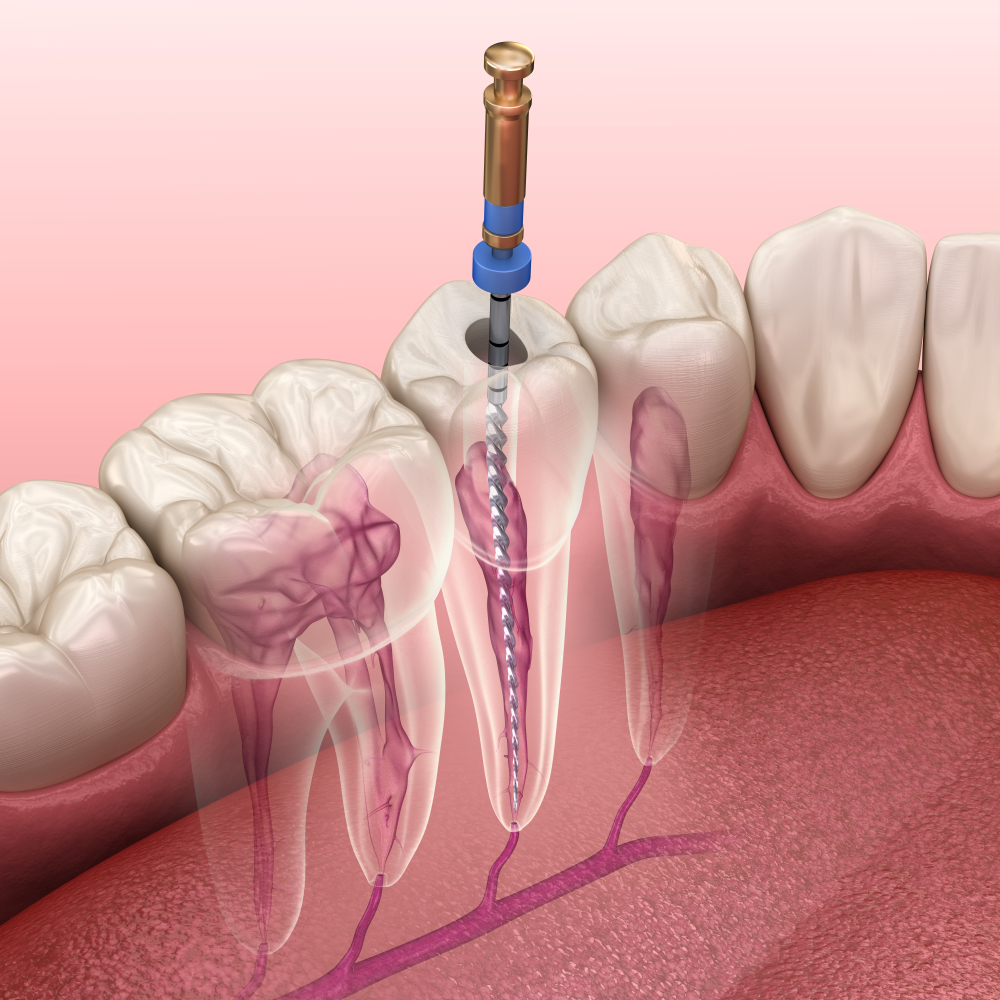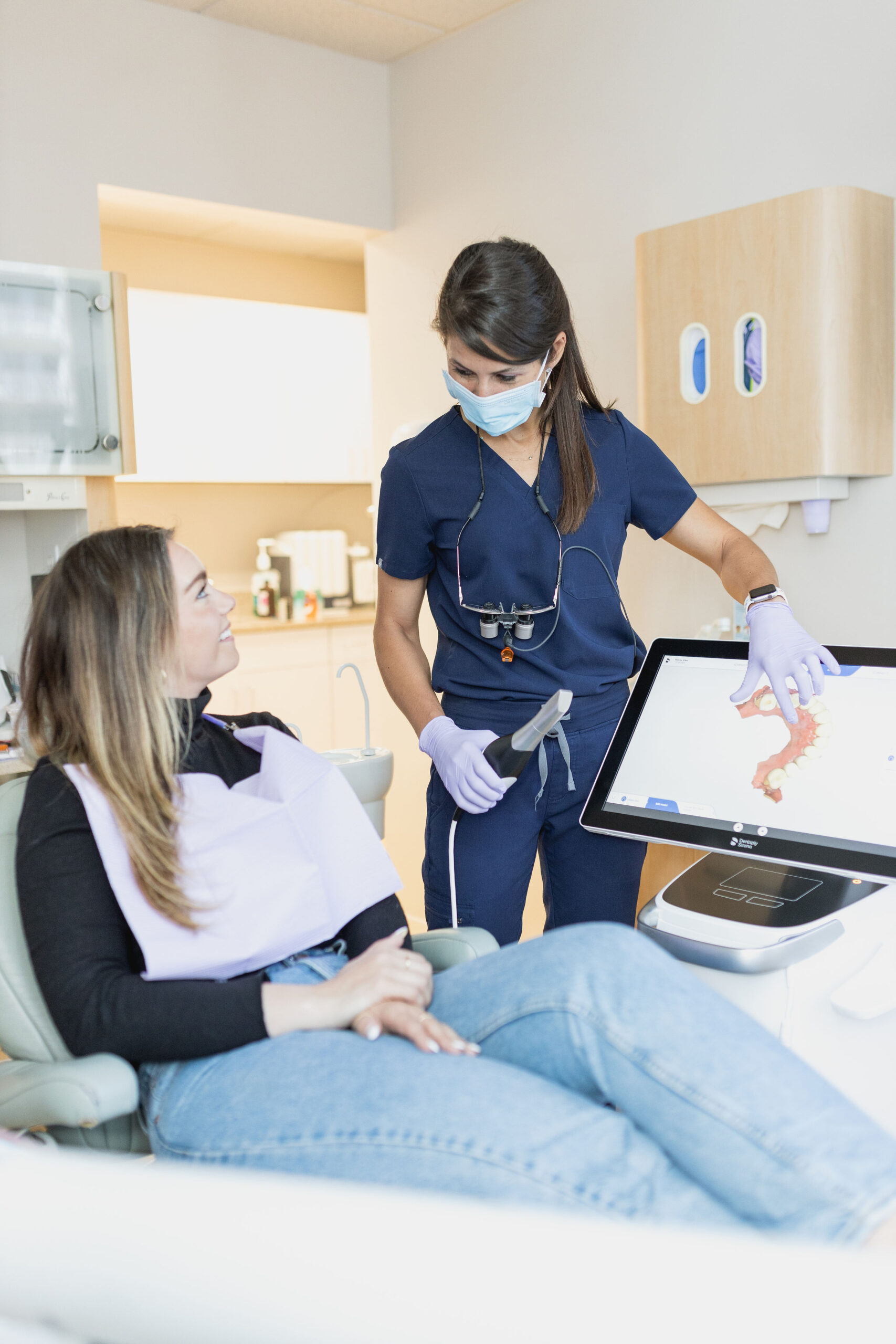Root Canal Therapy
Root canal therapy is performed with precision and care to relieve pain and save your natural tooth. Using advanced techniques and sedation options, we ensure a comfortable, stress-free experience and a smooth recovery.
What is Root Canal Therapy?


Overview
When a tooth is infected or damaged, it can cause significant pain and discomfort. Many people assume that the only solution is to have the tooth extracted, but there is another option: root canal therapy. At Smiles of Chevy Chase, Dr. Despina Markogiannakis can offer this treatment to save your tooth from infection and extraction, allowing you to keep your natural smile and maintain your oral health. Keep reading to learn how our Chevy Chase, MD dentist can help you keep your teeth and avoid more invasive dental procedures.


Benefits of Root Canal Therapy
Undergoing a root canal when necessary can have many benefits including:
- Saving the natural tooth from extraction
- Relieving pain and discomfort associated with tooth infection and damage
- Restoring the tooth's function and appearance
- Preventing the spread of infection to other teeth and the gums
- Potentially eliminating the need for more costly & invasive treatments like extraction
Who’s a Good Candidate for Root Canal Therapy?
It can sometimes be difficult to know if you need a root canal, as infection or other oral health problems can be subtle and aren’t always painful. You may be a candidate for root canal therapy if you’re suffering from a:
- Cracked or fractured tooth
- Deep cavity or decay that has reached the pulp
- Tooth that has undergone trauma or injury
- Persistent toothache or sensitivity to hot or cold temperatures

The Root Canal Therapy Process
/1
Initial Consultation
During your initial consultation,the dentist will examine your tooth, review your medical history, and ask you about your smile goals. The information she gathers will help her determine if root canal therapy is necessary. She’ll also tell you about your other options, so you can make an informed decision.
Your consultation is a great time to ask any questions you may have. If the prospect of a root canal is making you especially nervous, don’t worry. We can also offer sedation dentistry options, including nitrous oxide sedation and oral conscious sedation.
/2
Preparation
Before the procedure, your dentist will numb the area around the affected tooth with the Wand®, a more gentle anesthetic method, to ensure that you are comfortable. Once we’re sure you’re numb, your dentist will proceed with the root canal.
/3
Root Canal Therapy
During your root canal procedure,the dentist will create a small hole in the tooth and use specialized tools to remove the damaged or infected pulp. Once the pulp has been removed, the tooth will be cleaned and filled with a special material to prevent further infection and support the tooth.
/4
Follow-Up Visits
After the procedure,we instead of will schedule follow-up visits to monitor your progress and ensure the tooth is healing as expected. These visits may include x-rays to assess the success of the treatment and determine if any further steps are necessary.
Aftercare
It is important to follow proper care instructions to ensure your tooth heals properly. To care for your tooth after the procedure, here are some guidelines you’ll need to follow:
- Brush and floss as usual, taking care around the treated tooth to avoid irritation or damage.
- Take any prescribed pain medication or antibiotics as directed by Dr. Markogiannakis.
- Follow a soft food diet for the first few days after the procedure.
- Contact Smiles of Chevy Chase if you experience severe pain, swelling, or other concerning symptoms after your procedure.

Save Your Teeth From Infection and Extraction, Call us Today!
If you’re experiencing symptoms of a tooth infection, don’t hesitate to take action. Our team at Smiles of Chevy Chase is here to help stop infection, reverse damage, and preserve your oral health. Contact us today at 301-652-0656 or fill out our online contact form to schedule a consultation and learn more about how root canal therapy can save your smile. We serve new and returning patients across the greater Washington, DC area including Chevy Chase, Bethesda, Somerset, and Forest Hills, MD.

Frequently Asked Questions
Is root canal therapy painful?
The procedure itself is not painful, as you will be given a local anesthetic to numb the area. However, some discomfort may be experienced after the procedure for a few days. This can be easily managed with over-the-counter pain medication.
How long does root canal therapy take?
On average, a root canal takes one to two hours. However, the exact time frame for a root canal will vary depending on the complexity of your case. Your dentist will give you a more accurate breakdown during your initial consultation.
How long does it take to recover from root canal therapy?
Recovery time varies, but most patients are able to resume normal activities within a day or two after the procedure. Be sure to follow all instructions given by your dentist to ensure your recovery goes smoothly.
Is root canal therapy covered by insurance?
Root canal therapy is typically covered by dental insurance, but the extent of coverage can vary based on the individual policy. It’s important to check with your insurance provider to understand your coverage options and any potential out-of-pocket costs. Your dentist should be able to work with you to maximize your insurance benefits and explore financing options if needed.

